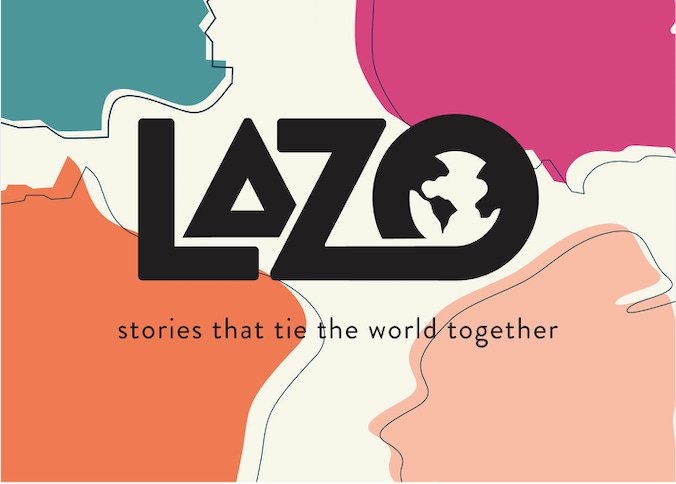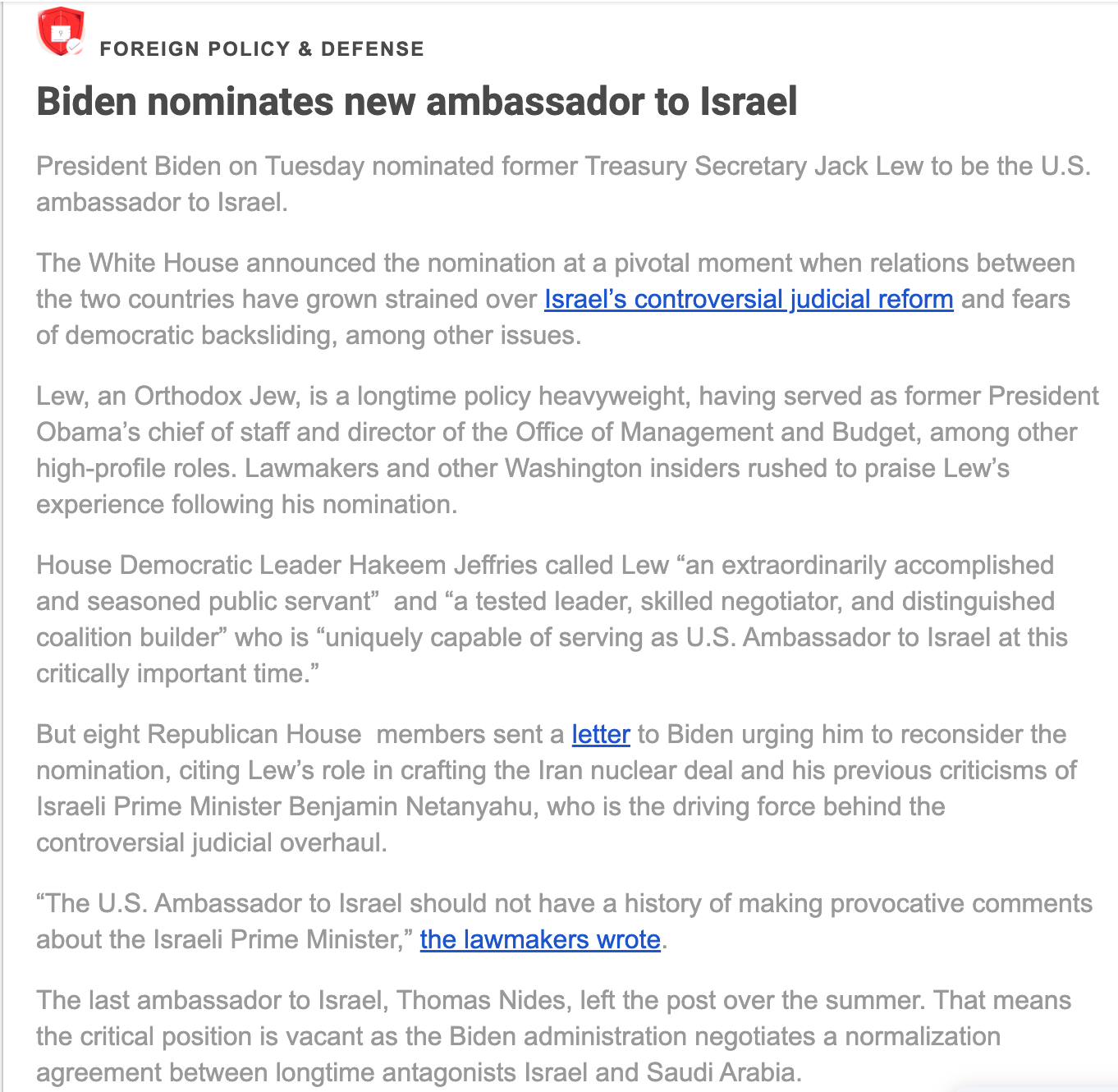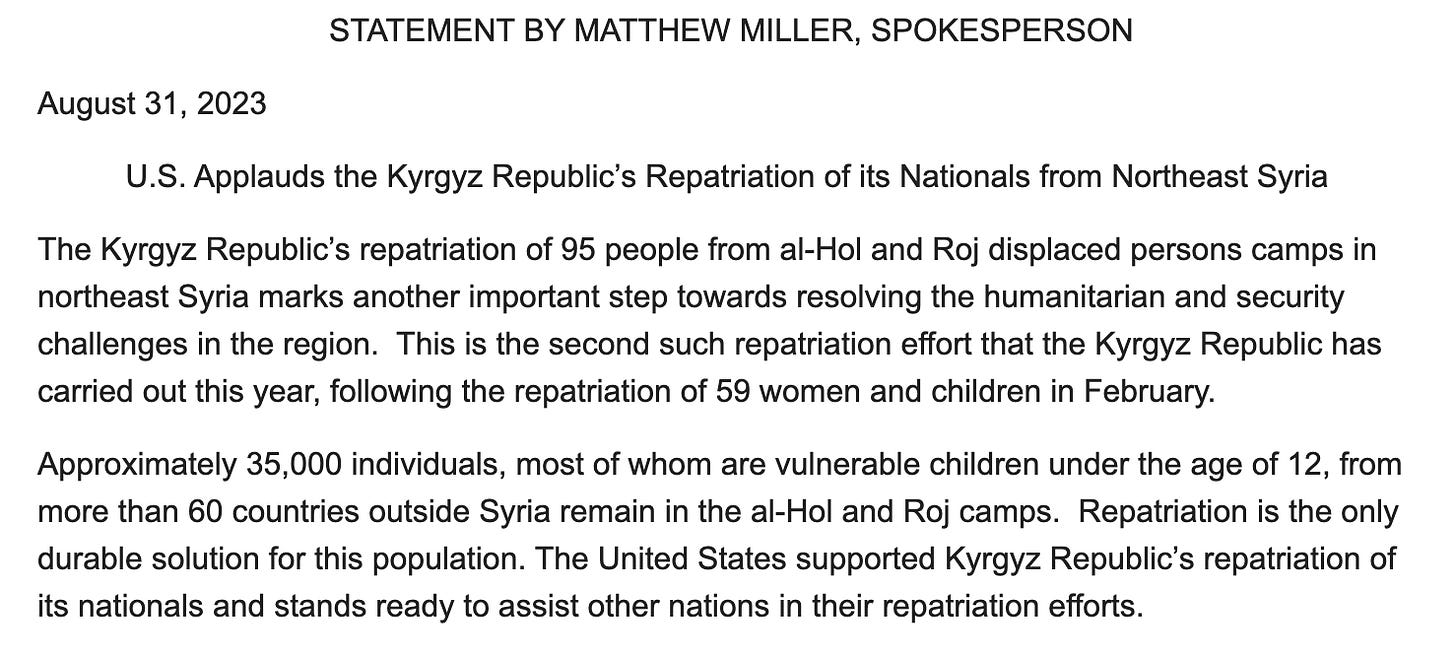Greetings from Virginia. I'm staying in a picturesque cabin in Falls Church, a place I've never been before. It's that affluent part of the U.S. state of Virginia that rubs up against Washington, D.C., where the people with money move when they're ready to leave the city and obtain a grassy lawn for their kids.
I'm here to attend a conference on pluralism and to deepen my understanding of the concept outside of the generally accepted definition in political philosophy. The definition of pluralism, just to clarify, is "the recognition and affirmation of diversity within a political body, which is seen to permit the peaceful coexistence of different interests, convictions, and lifestyles."
Another option is “a theory or system that recognizes more than one ultimate principle.”
But someone here described it as a place where diverse identities and divergent ideologies gather, and I like that version best.
In many ways, it’s what this editorial project is trying to promote: the idea that we’re all a tiny part of a diverse world, and the more we mingle and explore our differences, the pluralities of our existence and societies, the richer our experiences will be and the more we’ll enjoy our brief time on this planet.
The common thread I’m hearing at this conference, where I seem to be the lone journalist surrounded by academics and authors and not just a few philosophers, is that we should strive to spend more time discussing issues with people with whom we don’t agree; that we should hone our ability to argue both sides of a complex argument, and extend grace to others even if they don’t “deserve it.”
I don’t agree with everyone I’ve heard speak here. But that’s precisely the point, because I do believe in the ideals of pluralism, and I’m actively putting the concept into practice by having robust discussions with people whose ideas don’t necessarily resonate and whom I might otherwise not meet.
I’ve also wrestled with the question of when a full-throated embrace of difference becomes immoral because you’re turning a blind eye to someone perpetrating injustices or doing harm in the name of their ideology or intellectual underpinnings. Do we have a moral responsibility to call people out when we think what they’re saying is harmful or wrong? Does that stifle free expression? Or does it foster debate and spark social change?
Debates around the role of discourse and free speech abound here, and I’ve walked away with countless book recommendations.
One of the most interesting breakaway discussions I’ve participated in so far was on pluralism in rural areas and the rural-urban divide. Maybe I found it fascinating because it’s something I know nothing about. But I couldn’t help but think that cultural differences between urban and rural areas are somewhat similar to those that exist between different countries.
The conference was organized by the Mercatus Center at George Mason University, which was also kind enough to award me with a grant to help launch Lazo Magazine.
Once online, Lazo will be a publication for and about travelers, i(e)mmigrants, expatriates, diasporas, minorities, dual citizens, third culture kids, anyone crossing borders or thinking multiculturally, and really anyone who wants to know more about the world. And who understands pluralism better than those people?
What I’m writing:
• I wrote about what’s next for the Wagner Group now that Yevgheniy Prigozhin is presumed dead. The Russian Ministry of Defense, especially the Russian military intelligence, will play a big role in Syria and Libya. But other private military companies will probably be needed. This story is unlocked and free to read.
• Here’s my Q&A with Congressman Joaquin Castro, in which we discuss why the U.S. should build a new type of relationship with leftist leaders in Latin America and move beyond the dynamics of the Cold War. It’s unlocked and free to read.
My weekly news blurbs:
What I’m reading:

• Elon Musk’s SpaceX cut Starlink satellite internet services to Ukrainian submarine drones last year as they were launching an attack on Russian vessels, the Washington Post reports.
• Ukrainian President Volodymyr Zelenskyy tapped Rustem Umerov, chief of Ukraine’s state property fund and a special presidential envoy, as the new minister of defense, the Wall Street Journal reports. Umerov will be the most senior Crimean Tatar official in the Ukrainian government, indicating Tatar support for Ukrainian efforts as they try to retake occupied Crimea.
• Ukraine could lose one of its staunchest supporters in the September 30 elections in Slovakia, the New York Times reports. The election frontrunner pledged to halt arms deliveries to Ukraine, has denounced sanctions against Russia, and criticized NATO.
• Romanian Defense Minister Angel Tîlvăr confirmed that parts of a drone were discovered in the country following a Russian attack on Ukraine along the Danube River, Politico reports.
• Russian-backed authorities in Crimea are cracking down on pro-Ukrainians and are making a public show of the apprehended “traitors,” the Wall Street Journal reports.
• Cuban authorities are “working on the neutralization and dismantling” of a Russian human trafficking network that is coercing Cuban citizens to fight for Russia in Ukraine, Reuters reports.
• Russian General Sergei Surovikin, who had not been seen in public since the paramilitary organization Wagner group’s failed armed action, appeared in a photograph online with the caption “Alive, healthy, at home, with his family, in Moscow,” the BBC reports.
• Armenia is set to host a joint military exercise with the United States next week, a development Russia said was cause for concern, Al Jazeera reports.
• The self-exiled former Catalan president Carles Puigdemont called for the dropping of all judicial cases against himself and his fellow separatists as the price for securing his party’s support in forming a new Spanish government in the wake of July’s inconclusive general election, the Guardian reports.
• An explosive and unsubstantiated allegation that Paris gave the order to shoot down an Italian passenger jet in 1980 in a bid to kill Libyan dictator Muammar Gaddafi risks sparking a diplomatic row between Italy and France, Politico Europe reports.
• Fifty-four civilians were reportedly killed during clashes between a U.S.-backed, Kurdish-led militia and their former Arab tribal allies in Syria, the BBC reports.
• Israeli Prime Minister Benjamin Netanyahu said he would deport Eritrean migrants after violent clashes in Tel Aviv, NBC News reports. Protests by rival groups of Eritreans left dozens injured and reignited debate about migration.
• The Eritrean military continues to perpetrate war crimes and crimes against humanity in the Tigray region despite a peace deal signed last November, according to a report by Amnesty International.
• Gabon’s military junta ended deposed President Ali Bongo’s house arrest due to “his state of health,” Al Jazeera reports. A junta spokesperson said, “He may, if he wishes, travel abroad for medical check-ups.”
Interesting statements:
You can write to me for any reason: c.maza@protonmail.com










Thanks for including the note about US-Armenia exercises. It would be great if the US could pull that country away from Russia.
Good for you.
Anecdotally, pluralism is diminishing because people are rejecting it.
Pluralism takes effort, understanding, and courtesy (and the acceptance that our beliefs may not be right).
Rejection is appealing because it reaffirms our superiority (and it is plain fun to denigrate the "enemy").
For individuals to reject pluralism is lazy.
For the media to reject it, verges on malpractice.
Glad that you made the effort.